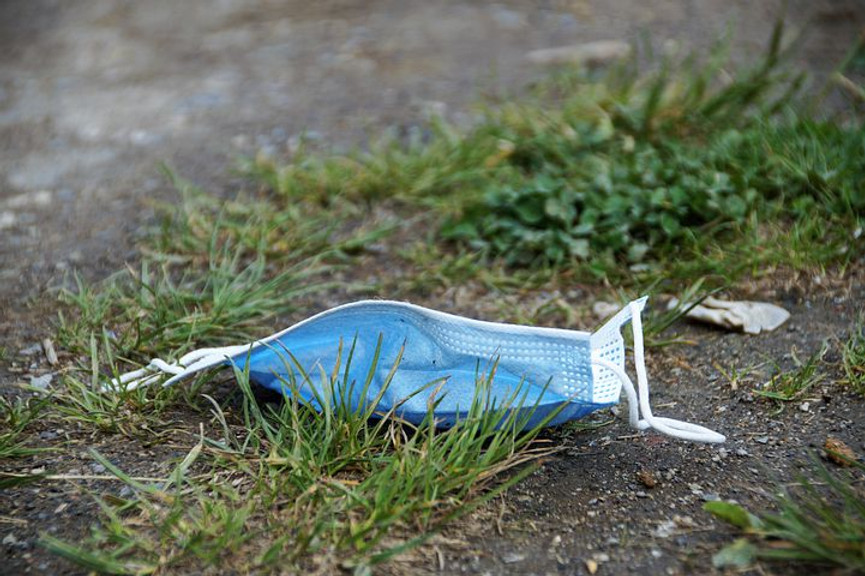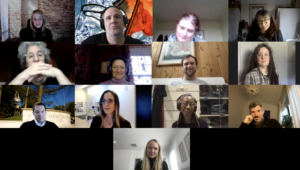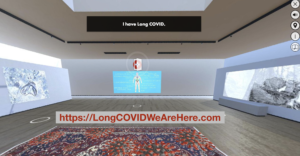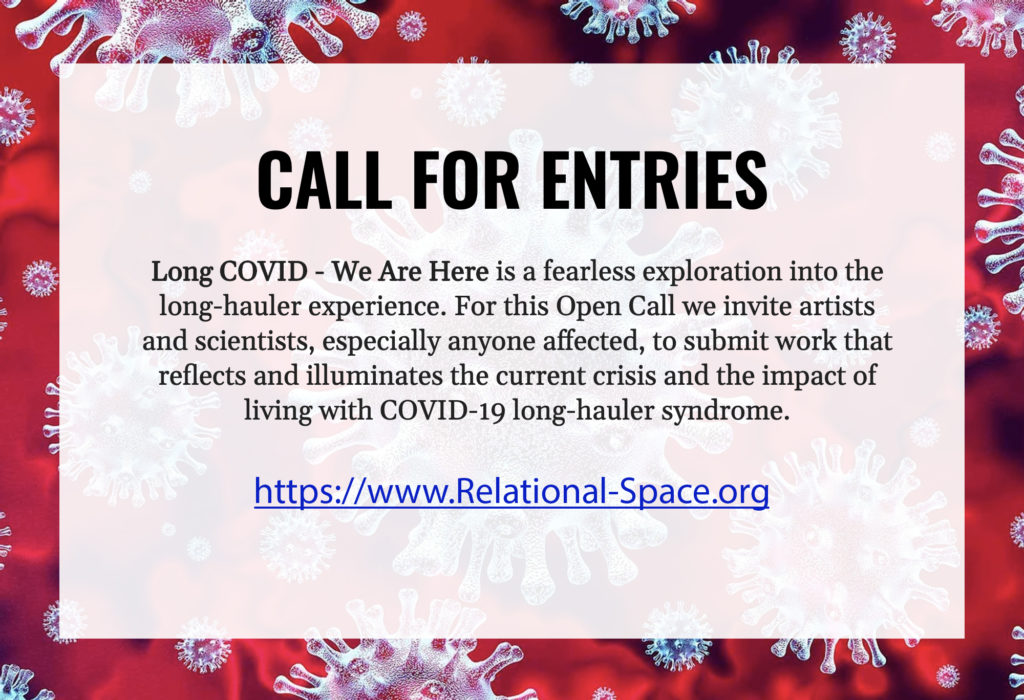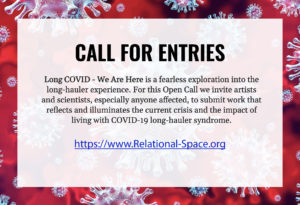Sam Baumel is a creative producer based in New York City with over a decade of experience. Sam consults with nonprofits, advertising agencies and businesses to help them tell stories with video and virtual reality. His success can be attributed to a passion for discovery – Sam loves learning about his clients’ industries and how to help them fulfill their missions. He collaborates with a diverse roster of talented creative technologists, independent filmmakers and companies carefully selected to best suit the scope of each project.
Helen Collen, originally from Brooklyn, NY, is an award-winning costume designer of 25 years. 18 of those years were served as the resident costume designer of the Billie Holiday Theatre in Brooklyn where she received a mayoral citation in 2014 for her services as an artist-in-residence. Helen is also a union affiliated wardrobe- supervisor/seamstress/costumer who has worked on Broadway, for major studio films and for television. Her costume designs and wardrobe work have appeared in hundreds of performances around the country that include the Kennedy Center in Washington, DC, CBS LateNight with David Letterman, Radio City Music Hall, ABC’s ‘Dancing With The Stars’, NYC’s classic American Place Theatre, HBO’s ‘The Wire’, Baltimore’s famed Centerstage theatre, to name a few.As a fine art photographer she has successfully exhibited photos three times- twice in New York City and once in Los Angeles. Helen’s medium of choice to showcase her photos is Vibrachrome-a metallic option that allows the reduction of carbon footprints during reproduction. Not being limited to videography, painting, drawing, or avid reading also Helen’s crochet artistry-an eclectic mix of soulful hats, worn by performance artists including Macy Gray, Kelly Ripa and Common, can be found at
www.helucination.com
Helen’s writing and editing credits are varied and include multiple press and/or media releases, copy for tv, poetry and short stories. As a songwriter (BMI reg.) She co-writes songs with her husband Phil Collen, lead guitarist of Def Leppard and singer god-mother Debbi Blackwell- Cook for the blues-rock-n-soul band DELTA DEEP featuring Phil on guitar and sharing lead vocals with Debbi. “Delving further into different creative mediums for a continued sense of exploration, expression and fulfillment is a continuous journey”, she states. “I am very grateful to be excepted into a community merging art and science for the sake of ignited resolution-a fiery exclamation of the need to find a permanent end to long haul Covid. And I do believe with all my heart there is an end.”.
https://www.helencollenphotography.com
Dominik Havsteen-Franklin is a Professor of Practice (Arts Therapies) at Brunel University, with a Ph.D. in Art Psychotherapy and Metaphor. He is also head of the International Centre for Arts Psychotherapies Training (ICAPT) for Central and North West London NHS Foundation Trust, Vice President for the European Federation of Art Therapy and a member of the Council for the British Association of Art Therapists. His research focuses on applying empirical methods to investigating and evaluating the use of arts to facilitate changes in health conditions. His recent research has centred on co-designing and investigating arts-based dynamic interpersonal therapy (ADIT) for depression, creative and resilience engagement (CaRE) for frontline healthcare workers, developing arts-based psychosocial practice in South Africa, and is a co-applicant for an NIHR funded large scale RCT (ERA) investigating the effectiveness of arts therapies for heterogeneous groups in mental health services. Dominik supervises PhD students from a range of arts disciplines. He also continues to work as a consultant, an art psychotherapist and a clinical supervisor for the National Health Service. Recent articles include: https://www.sciencedirect.com/science/article/abs/pii/S0197455620301209?via%3Dihub https://www.frontiersin.org/articles/10.3389/fpsyg.2020.589744/full
Ali Pattillo is a journalist, audio, live event producer working as a reporter at Inverse magazine covering health, climate change and science. Previously, Ali covered health at CNN with Dr. Sanjay Gupta. She graduated from Columbia Journalism School in 2019 and Dartmouth College in 2017. She produced the Fourth International Vatican Conference: Unite To Cure in 2018. The interdisciplinary conference broght together scientific, political, business, and faith leaders to explore how science, technology, and 21st century medicine will impact culture and society.
https://vaticanconference2018.com/ She has written multiple articles about Long COVID, the most recent, 12/7/2020 Inside the Virtual World of Covid-19 Long-Haulers discusses the experience of long COVID including personal reports of symptoms, challenges and the need for research and treatments.
https://www.inverse.com/mind-body/covid-19-long-haulers
The archive of Ali’s work at Inverse, can be accessed here:
https://www.inverse.com/profile/ali-pattillo-19621088
Ali Pattillo website:
https://alexandrapattillo.com/
Pato Hebert, MFA is an artist, educator and organizer. Hebert’s artwork explores the challenges and possibilities of interconnectedness. His projects have been presented at the Ballarat International Foto Biennale, the Songzhuang International Photo Biennale, the Centro de Arte Contemporáneo in Quito, Beton7 in Athens, PH21 Gallery in Budapest and IHLIA LGBT Heritage in Amsterdam. Hebert’s work has been supported by grants from the Rockefeller Foundation, the Creative Work Fund and the California Community Foundation. In 2008 he received the Excellence in Photographic Teaching Award from Center in Santa Fe. He serves as Chair of the Department of Art & Public Policy at Tisch School of the Arts, New York University, where his students have twice nominated him for the David Payne-Carter Excellence in Teaching Award.
Alexandra Juhasz, Ph.D. is Distinguished Professor of Film at Brooklyn College, CUNY. She is a core faculty member in the Interactive Technology and Pedagogy Certificate Program at the CUNY Graduate Center. Dr. Juhasz writes about and makes feminist, queer, fake, and AIDS documentary. She has a Ph.D. in Cinema Studies from NYU (1991) and attended the Whitney Independent Studio program as a video maker (1988). Author and/or editor since 1995 of scholarly books and writing on activist media in light of AIDS, black lesbian and queer representation, feminism, and digital culture, Dr. Juhasz is also maker of videotapes on feminist issues from AIDS to teen pregnancy as well as producing the feature fakes “The Watermelon Woman” (Cheryl Dunye, 1997) and “The Owls” (Dunye, 2010). Her current work is on and about feminist Internet culture (fakenews-poetry.org), with a most recent book, “Really Fake” with Nishant Shah forthcoming from U MN Press (2021), and two others on AIDS recently released or coming to press from Duke: “AIDS and the Distribution of Crises” (ed., with Nishant Shahani and Jih-Fei Cheng, 2020) and “We are Having This Conversation Now: The Times of AIDS Cultural Production,” with Ted Kerr (forthcoming). Kodandi Nithyananda is a multi-media artist whose work touches themes of the body as ephemera, the intersections of resilience, advocacy, illness, disability and pandemic, queering the sublime, and spaces of interiority. The artist’s work comes from a meditative space and is informed by life in an ashram and time spent as a monk. She has experience in web design, graphic design, arts, art education and fabrication. She is experiencing Long COVID at this time.
Shona Patterson, PhD (Brunel University, London) Shona Paterson, PhD (Brunel University London) has a transdisciplinary background in Natural Sciences (Marine Biology, Coastal Resource Management) and Social Science (Climate Adaptation, Social Justice, Governance). With a special interest in marginalized communities and social justice and equity, Shona’s recent research has focused on global flood risk and resilience, adaptation, and adaptive capacity in urbanizing coastal areas. Paramount to Shona’s work is the generation of defensible research informed by the needs of society and co-created with intended beneficiaries. Her work not only bridges science and policy but also focuses on effective and fit-for-audience communication of data and knowledge to ensure increased open and impactful discourse around risk. Paterson, S. et al (2020). Examining the Potential of Art-Science Collaborations in the Anthropocene: A Case Study of Catching a Wave, Frontiers in Marine Science, 7, 340.
doi.org/10.3389/fmars.2020.00340
https://www.researchgate.net/publication/341488469_Examining_the_Potential_of_Art-Science_Collaborations_in_the_Anthropocene_A_Case_Study_of_Catching_a_Wave
Heather Raikes, Ph.D., is Founder and Director of Neopoetics, a creative research studio innovating at the intersection of future-focused art and design research and the developing immersive technology ecosystem (XR/VR/AR/MR). Drawing upon decades of creative inquiry in media art, human-computer interaction design, UX, 3D visualization, immersive storytelling, performance, video, animation, and embodiment, Neopoetics probes, discovers, and creates emergent sensory experience. Heather led production of groundbreaking early XR experiences and applications, including The Holographic Workstation financial data visualization that forged new models for 3D information design; SK-II’s holographic story experience for the Tokyo Olympic Pavilion; Capturing Everest VR, a 360 video documentary of an Everest summit that won a Digital Innovation Emmy Award. She has a Ph.D. in Digital Arts and Experimental Media. Her work has been exhibited throughout the world at venues such as ISEA International, Culturest, On the Boards, Henry Art Gallery, and The Kennedy Center, and granted fellowships with the Center for Advanced Inquiry in the Interactive Arts and Oculus Launch Pad. Heather is a former professional modern dancer with the Erick Hawkins Dance Company. Her creative work is uniquely rooted in the body, and in the design of embodied interfaces with emerging technological systems.
Jeffrey N. Siegelman, MD is an Associate Professor of Emergency Medicine and Associate Residency Director at Emory University School of Medicine. His academic interests include ophthalmologic emergencies, as well as using simulation for resident education and assessment. He is experiencing Long COVID and has been vocal about advocacy for research and treatment. Siegleman, J. N. (2020). Reflections of a COVID-19 Long Hauler, JAMA, 324(20):2031-2032.
https://jamanetwork.com/journals/jama/fullarticle/2773056
Bettina von Stamm, MBA, Ph.D. (Design Management, London Business School) is the Founder and Director of the Innovation Leadership Forum. She works with leaders and leadership teams to give them confidence to innovate and collaborate in the 21st century. She delivers executive programs at prestigious universities and corporations around the world. She is a storyteller, inspirator and catalyst to enable different ways of thinking around, understanding, and enabling innovation. Bettina is a prolific writer in the fields of sustainability and innovation including written 5 books (The Innovation Wave, Managing Innovation Design & Creativity, The Future of Innovation, Innovation – The Path of Embracing Change to Create Value, Secrets Of Working Across Five Continents).
Karta Thomas is a ceramicist working on her degree at University of the Arts Central St. Martin’s, London. She is also an advocate for social change related to ME/CFS, recognizing the overlap of suffering and disease course between ME/CFS and Long COVID. When a virus she contracted in 2007 left her with profound protracted fatigue and multisystemic dysfunction, she experienced first-hand the invisibility, disbelief and underfunding that post-viral syndromes are met with. It took her 2 years to receive a diagnosis of ME/CFS and a further year to obtain medical tests and help. Her condition is largely self-managed through her own research on ME/CFS forums and associations. She is one of the moderators on an ME/CFS/Fibromyalgia online forum counting 4.1K members worldwide. She is a volunteer participant in the “Cure M.E.” Biobank study conducted by the London School of Hygiene & Tropical Medicine.
https://cureme.lshtm.ac.uk/
She is part of the Bethlem Gallery artist led research group.
https://bethlemgallery.com/
She is a qualified Hatha, Kundalini and Laughter Yoga teacher. She specialized in Yoga for ME/CFS and as such she is on the advisory panel of a yoga charity.
https://www.grdp.co.uk/
She worked 20 years in the pharmaceutical industry, in R&D Coordination and Regulatory Affairs, interfacing with The European Medicines Agency. On re-joining the workforce after 4 years of interruption due to ME/CFS, she became a Rehabilitation Worker for the Visually Impaired and later worked in the NHS as an ECLO at Moorfields Eye Hospital in London, where she helped patients navigate the practical and emotional impact sight loss had on their life. Instagram:
https://www.instagram.com/kartadharma/
https://kartadharma.wixsite.com/karta
Facilitation by Leigh W. Jerome, Ph.D., Founder and Executive Director of a non-profit gallery and forum, Relational Space, Inc. She is a mixed media and installation artist and holds a Ph.D. in Clinical Psychology. She is currently experiencing Long COVID. With many thanks to Kirsten Richert, CEO Richert Innovation Consulting.
Musician Contributions
Susan Levine, MD is a Board Certified Infectious Disease specialist who is a member of the Centers for Solutions for ME/CFS at Columbia’s Mailman School of Public Health, as well as a clinician/researcher affiliated with the Center for Enervating Disorders at Cornell, where she is a visiting researcher. She served as former Chairperson of the Federal Advisory Committee on CFS (CFSAC) and sees both COVID and non COVID related `long haulers’ in her clinical practice’. Custom Piano Tracts: · Schubert in a flat major opus 90 number 4 · Bach Praeludium, BWV 846 Jean Sophie Kim Pianist, singer and educator
Jean Sophie Kim has performed as a concerto soloist, recitalist and chamber player throughout the world. She has performed at the Alcazar Palace in Seville, Weill Recital Hall in New York, Fine Arts Building in Chicago and the Banff Centre in Canada, among others. She has degrees from the Manhattan School of Music and the University of Western Ontario. She has worked on the creative team for the David Lang’s Mile Long Opera in 2018 for the architecture firm Diller, Scofidio and Renfro. She is a long-time conductor at the Grammy award-winning Brooklyn Youth Chorus. Additionally, she has collaborated with producer David Maurice of Fox Grove Music on commercial music endeavors from children’s songs to avant-garde pop. · Phillip Glass, Etude #2
Other contributors:
Jody Britt is a fine art consultant based in New York. She contracted Covid 19 during the first wave in New York March 2020. Prior to her Covid 19 illness, she was a pilates devotee and enjoyed a long history of riding horses. Upon her recovery, she looks forward to resuming these cherished activities.
A journalist for the first 20 years of her career, Dr. Laurie Nadel is a psychotherapist and specialist in acute stress, trauma, and anxiety issues. She is considered a thought leader in the emerging field of acute stress and PTSD. From trauma to addictions–through workshops, lectures, and one-on-one sessions–her focus is helping people find new ways to heal.
Noah Greenspan, PT, DPT, CCS, EMT-B is a Board-Certified Clinical Specialist in Cardiovascular and Pulmonary Physical Therapy with over 27 years of cardiopulmonary physical therapy and rehabilitation experience. n 1998, he founded the Pulmonary Wellness & Rehabilitation Center, a Manhattan-based physical therapy practice specializing in the care of patients with cardiovascular, pulmonary and complex medical conditions.
